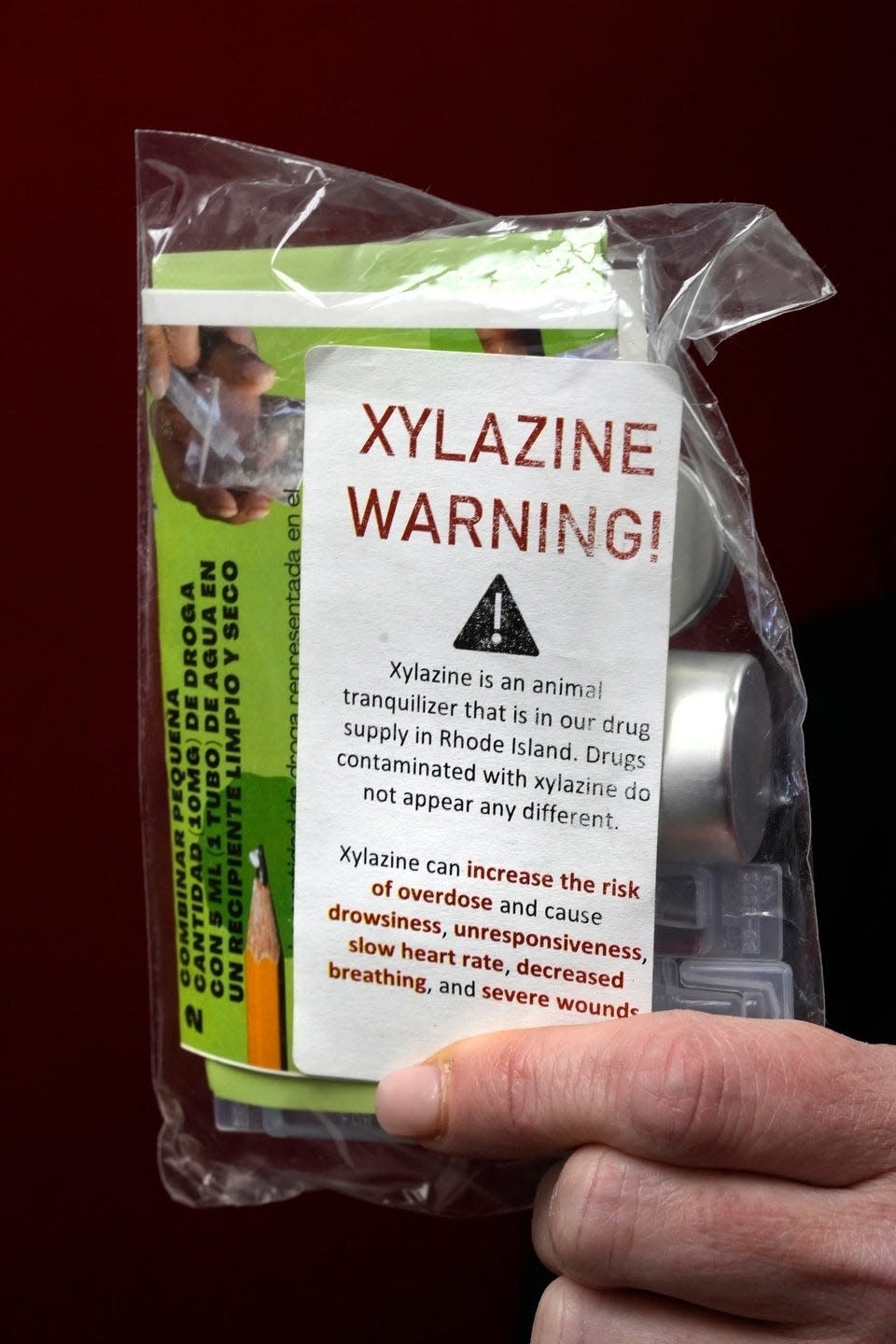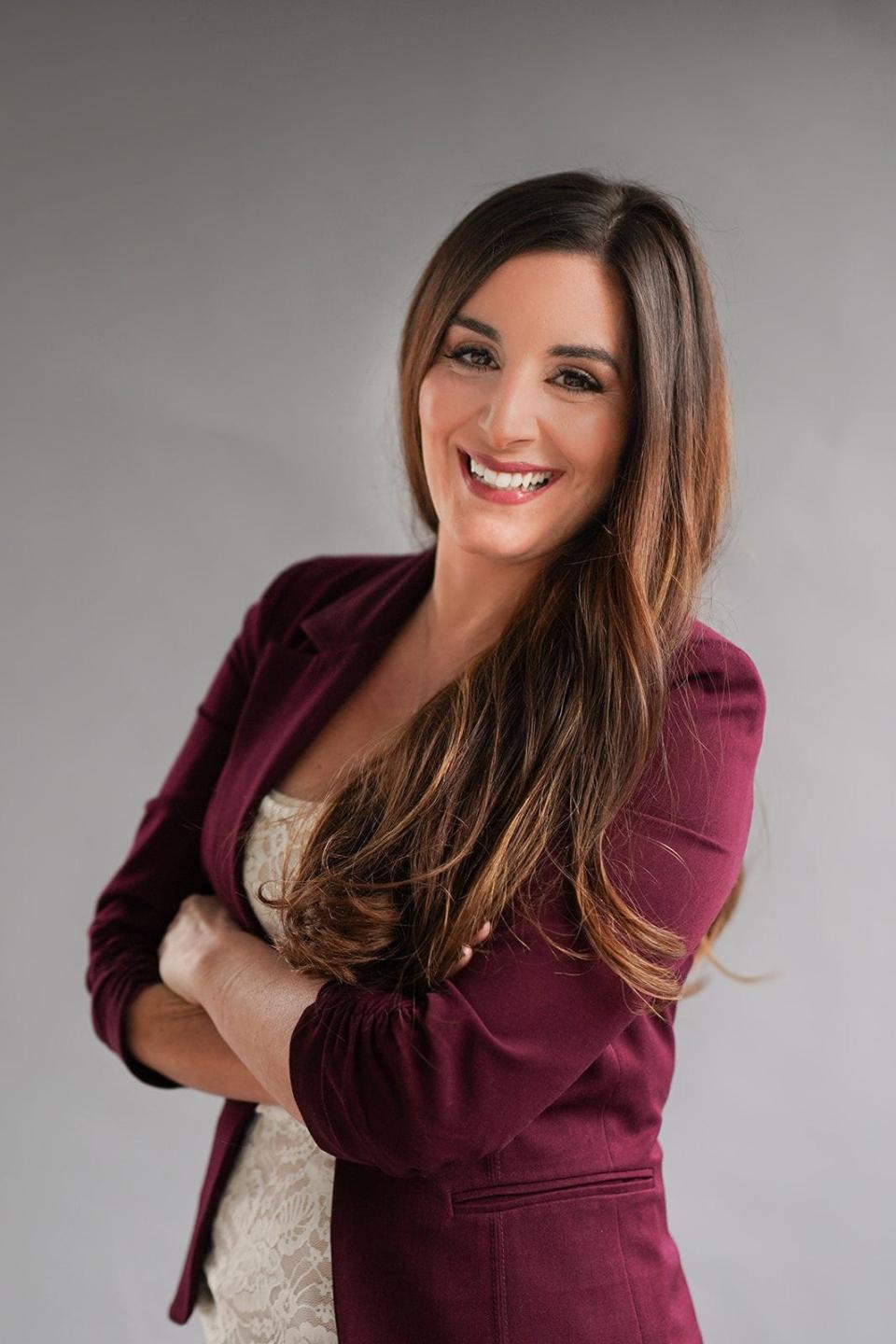How would you like it if a viral TikTok labeled your loved ones 'zombie-like addicts'?
Mainstream and social media carry an extraordinary amount of influence on the public. And that influence as it relates to the dehumanizing information shared about people who have been directly affected by the opioid and xylazine crises seems to be everywhere.
The most recent article I saw was published Sept. 12 by the New York Post titled, "Shocking video shows zombie-like addicts at ‘ground zero’ of Philadelphia’s ‘tranq’ epidemic." The article links to a TikTok video getting hundreds of thousands of views for filming individuals on the streets, many of whom seem unaware that they are even being filmed. This content is severely harmful to humanity, especially those who are documented in these videos.
Xylazine is a veterinary sedative that has been used to adulterate or “lace” synthetic opioids, such as illicitly manufactured fentanyl, and is being sold by itself and marketed on the street as “tranq.” One of the severe side effects of xylazine is that it causes a heavily sedative effect, leaving folks in an incoherent stupor.
The media commonly refers to these individuals as “zombies.” Seriously, zombies?
Dictionary.com defines a zombie as “an undead creature with a reanimated human body, typically depicted in science fiction or horror stories as contagious to the living by bite and vulnerable only to serious head trauma.”
If that’s not a dehumanizing way to describe a human being suffering an active addiction, then please put me in my place.

Addiction is a brain disease that does not discriminate
As a licensed clinical psychologist who has roots in the Kensington section of Philadelphia, accompanied by a long history of family members who struggle with addiction, this kind of news coverage is helping no one. It’s not helping the person who is in active addiction; it’s not helping their family members, partners or spouses; and it sure isn’t helping to accurately educate the public on the disease of addiction.
Addiction is a chronic-relapsing midbrain disease. We have the scientific evidence supporting addiction as a disease.
Alcoholics rationalize their drinking. For them, every day must be National Sober Day.
The limbic system is an area of our brains that influences our motivations, behaviors and arousal. Drugs like opioids, xylazine, stimulants (i.e., cocaine, crystal meth), nicotine and alcohol overstimulate the limbic system, inciting a level of arousal or a high that causes the individual to have overbearing cravings or urges that lead to compulsive and often uncontrollable use.
The overstimulation of the limbic system shuts down the prefrontal cortex, the area of your brain that lives behind the forehead and is responsible for making sound judgements and good decisions. When an individual becomes addicted, the prefrontal cortex becomes downregulated. Essentially, it malfunctions and leaves the individual with a drastically decreased capacity to make sound decisions.
This has been researched with extensive brain imaging studies.
This midbrain disease often has a behavioral presentation that manifests as someone with no moral compass. Lying, cheating, manipulating, engaging in dangerous behaviors such as prostitution and retail theft, and neglecting themselves and those who depend on them, such as their children.
Opinion alerts: Get columns from your favorite columnists + expert analysis on top issues, delivered straight to your device through the USA TODAY app. Don't have the app? Download it for free from your app store.
This is the reality and costs of addiction, and it does not discriminate. People in active addiction do and say things that are so far removed from the people we loved before they became addicted, and it hurts.
It hurts the person in active addiction because they have lost control and have literally lost everything. The party is over – they are no longer using “to party” or have fun, but to simply exist without feeling overbearingly sick with withdrawal.
It also hurts the family and friends who love them. They lose sleep worrying about their loved one in active addiction. They ask themselves what they could have done better to prevent their partner, daughter, son, mom, dad, sister or brother from becoming addicted.
Addiction is also a family disease
Addiction is as much a family disease as it is a brain disease because it affects everyone in its orbit.
I ask the social media “exploiters” and mainstream media reporters to imagine how they would feel if their or their loved ones’ photos and videos were plastered next to a headline that reads, “Shocking video shows zombie-like addicts at ‘ground zero’ of Philadelphia’s ‘tranq’ epidemic"? It hurts, doesn’t it?
Drug decriminalization isn't working: Oregon voters chose a different approach toward drug decriminalization. It was never going to work.
Kensington might be "ground zero" for the xylazine epidemic, but most individuals who are addicted were born and raised in more desirable ZIP codes before addiction led them to Kensington.
Residents born and raised in the neighborhood have also been impacted by the devastation of addiction that surrounds them. But I guess the headline for such a story wouldn’t be exploitative enough to support the narrative that people who are addicted to synthetic opioids or xylazine are “zombie-like addicts.”

Please do better. Drop the clickbait headlines and these horrific descriptions.
Focus on the systemic issues of addiction and the human being who is suffering underneath.
Geri-Lynn Utter, Psy.D., is a Philadelphia-based clinical psychologist, author of the soon-to-be-released "Aftershock: How Past Events Shake Up Your Life Today" and director of the new documentary “Utter Nonsense.”
You can read diverse opinions from our Board of Contributors and other writers on the Opinion front page, on Twitter @usatodayopinion and in our daily Opinion newsletter. To respond to a column, submit a comment to letters@usatoday.com.
This article originally appeared on USA TODAY: Treat drug addiction as a brain disease, not as clickbait headlines

